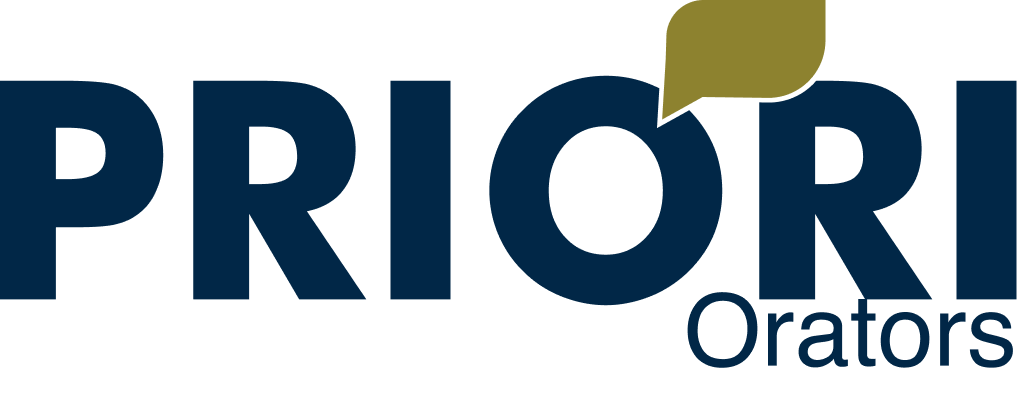In today’s interconnected world, religious communication sits at the heart of many public conversations, whether in the pulpit, the press room, the classroom, or the policy arena. Yet, despite its ubiquity, few are truly equipped to speak about faith in ways that are both intellectually rigorous and socially respectful. At Priori Orators, we believe this is not just a communication challenge, it is a leadership imperative.
The Power and Fragility of Sacred Language
Religious language is inherently charged. It is layered with symbolism, history, and identity. A single phrase, whether sacred verse or colloquial idiom, can comfort millions or offend thousands. Why? Because religion is not just a system of belief. It is a repository of memory, identity, pain, and hope. In many cultures, to speak about faith is to speak about who we are, where we come from, and what we believe the future should be.
This makes religious communication one of the most powerful and fragile forms of public discourse.
Beyond Eloquence: The Need for Hermeneutic Sensitivity
At Priori Orators, we teach that effective communication is not just about delivery, but about discernment. Religious communication demands a deeper layer of awareness, what scholars might call hermeneutic sensitivity. It is the ability to interpret and relay religious ideas in ways that honor the sacred, while remaining accessible, inclusive, and contextually appropriate.
We ask our trainees:
- Can you articulate the heart of your faith without lapsing into superiority?
- Can you engage with someone else’s belief without slipping into tokenism or condescension?
- Can you speak across religious divides without compromising your own integrity?
These are not just rhetorical questions. They are foundational to civil society, peacebuilding, and ethical leadership.
The Communicator as Bridge-Builder
Religious communicators today, whether clergy, government spokespersons, teachers, or media professionals, must see themselves not only as messengers but as bridge-builders. The goal is not to dilute difference, but to speak with depth, humility, and strategic empathy.
In our training programs at Priori Orators, we emphasize the following principles:
1. Contextual Intelligence
What is appropriate in a homogenous congregation may not translate in a diverse audience. Religious language must be context-aware, especially in multi-faith or secular settings.
2. Sacred Boundaries
Not every doctrine or ritual should be up for public consumption. Part of ethical communication is knowing what to say, and what not to say outside the walls of worship. We teach the value of strategic silence, not as avoidance, but as a mark of reverence.
3. Language of Dignity
Even in disagreement, speech must uphold the dignity of others’ beliefs. Humor, analogies, or comparisons must be carefully calibrated, especially when discussing beliefs not your own. Mockery or casual dismissal has no place in responsible religious discourse.
4. Symbolic Awareness
Religious communication is often symbolic, gestures, tone, and even dress carry meaning. We train our clients to read and respect these signs in interfaith and public settings.
5. Emotional Intelligence
Faith touches on deeply held hopes and fears. Skilled communicators must practice emotional attunement, especially when discussing topics like death, suffering, gender, or eternity.
The Cost of Careless Speech
History and current affairs are replete with examples of what happens when religious communication is careless, provocative, or unexamined. Riots have erupted over a single cartoon. Decades of interfaith progress have been undone by one ill-considered sermon. In an age of virality, one comment can ignite a global firestorm.
The communicator who cannot navigate religious sensitivities is not simply misunderstood they can be dangerous.
Training the Next Generation of Sacred Communicators
At Priori Orators, we believe religious communication is not just for the clergy. It is essential for:
- Government officials managing religious diversity
- Security and intelligence officers who engage with faith leaders
- Corporate executives who operate in multicultural societies
- Educators and counselors who guide young minds
- Media professionals reporting on faith-related issues
Our bespoke modules on “Sacred Speech and Strategic Communication” equip leaders to handle religious topics with both clarity and care. From diplomatic briefings to faith-based advocacy, we train speakers to engage rather than inflame, to educate rather than alienate.
Final Thoughts: Conviction with Consideration
In a time when faith is politicized, commercialized, and often misunderstood, we need more voices that are anchored in wisdom. We need communicators who do not speak louder, but speak better.
Because in the realm of religion, words are never just words.
They are instruments of peace, or provocation. Of healing, or harm. And it is our sacred duty to know the difference.







